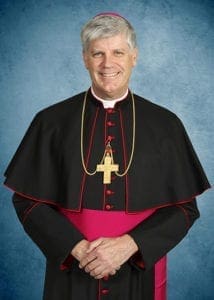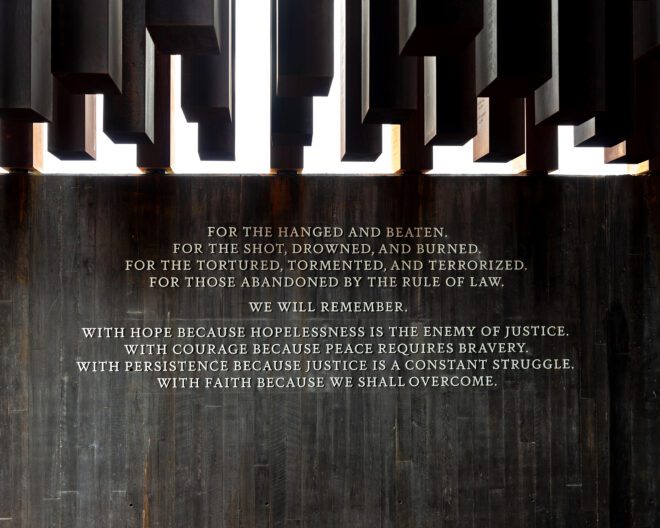Open Wide Our Hearts: a pilgrimage to Montgomery
By BISHOP BERNARD E. SHLESINGER III, Commentary | Published March 22, 2022 | En Español

Bishop Bernard E. Shlesinger III
In February, I made a pilgrimage to the Legacy Museum in Montgomery, Alabama with two employees of the Archdiocese of Atlanta, one from Justice and Peace Ministries and the other from the Office of Intercultural Ministries. I journeyed with them to Montgomery as a pilgrim seeking to understand more profoundly the past and present experiences of our African American brothers and sisters by walking silently and prayerfully on one of the most prominent slave auction sites in America.
During my visit to the Legacy Museum, I learned how the sin of slavery evolved after the abolition of legalized slavery into Jim Crow segregation, lynching and other forms of racial subjugation. Sadly, many today still suffer from the effects of this evolution as they are separated from others rather than woven into the fabric of a nation.
So many of our brothers and sisters of color live with racial profiling and the threat of mass incarceration where one of every three Black men are projected to go to jail or prison during their lifetime. The Legacy Museum offered me an opportunity to be shocked into action and advocacy but also made me experience a sense of helplessness in making deep changes regarding building a more just society.
After my visit to the Legacy Museum, I realized that the pain many people experience will not go away overnight and maintaining the status quo helps no one. There is no need to exonerate myself and tell myself “I am not responsible for the sins of others in the past.” Such a posture would lead to further inaction in righting a wrong. I was told by a wise leader of the church to “lead with the victims” when I am tempted to take a defensive posture toward hearing and experiencing their pain.
St. Teresa Benedicta of the Cross (Edith Stein) wrote, “If we take ourselves as the standard, we lock ourselves into the prison of our individuality. Others become riddles for us, or still worse, we remodel them into our image and so falsify historical truth.” To humanize the experience of others is a goal of charity.

Bishop Bernard E. Shlesinger III recently took a pilgrimage to The Legacy Museum and the nearby National Memorial for Peace and Justice. Photo by Johnathon Kelso
We have the ability to empathize and learn from our brothers and sisters of color, and that can lead to a greater conversion of heart. To try to fathom the depth of the painful experiences of many African Americans today by simply reading about it in a textbook or watching it on the news is not enough. We must do more.
The question remains for me: What can we do to overcome the indifference toward so many who simply cry for respect of their dignity as human beings? Taking a pilgrimage to Montgomery can be an eye-opening and heartfelt experience.
Further action can take on many forms of solidarity through prayer, dialogue, education and advocacy. I encourage all to make a similar pilgrimage to the Legacy Museum in Montgomery and to read the U.S. Bishops’ pastoral letter, “Open Wide Our Hearts—The Enduring Call to Love,” which states unequivocally that racism is a life issue.
May we all dedicate ourselves to dismantling racist structures and practices that are still embedded in the social, legal and political fabric of our nation. St. Paul reminds us: “If one member suffers, all suffer together; if one member is honored, all rejoice together.”